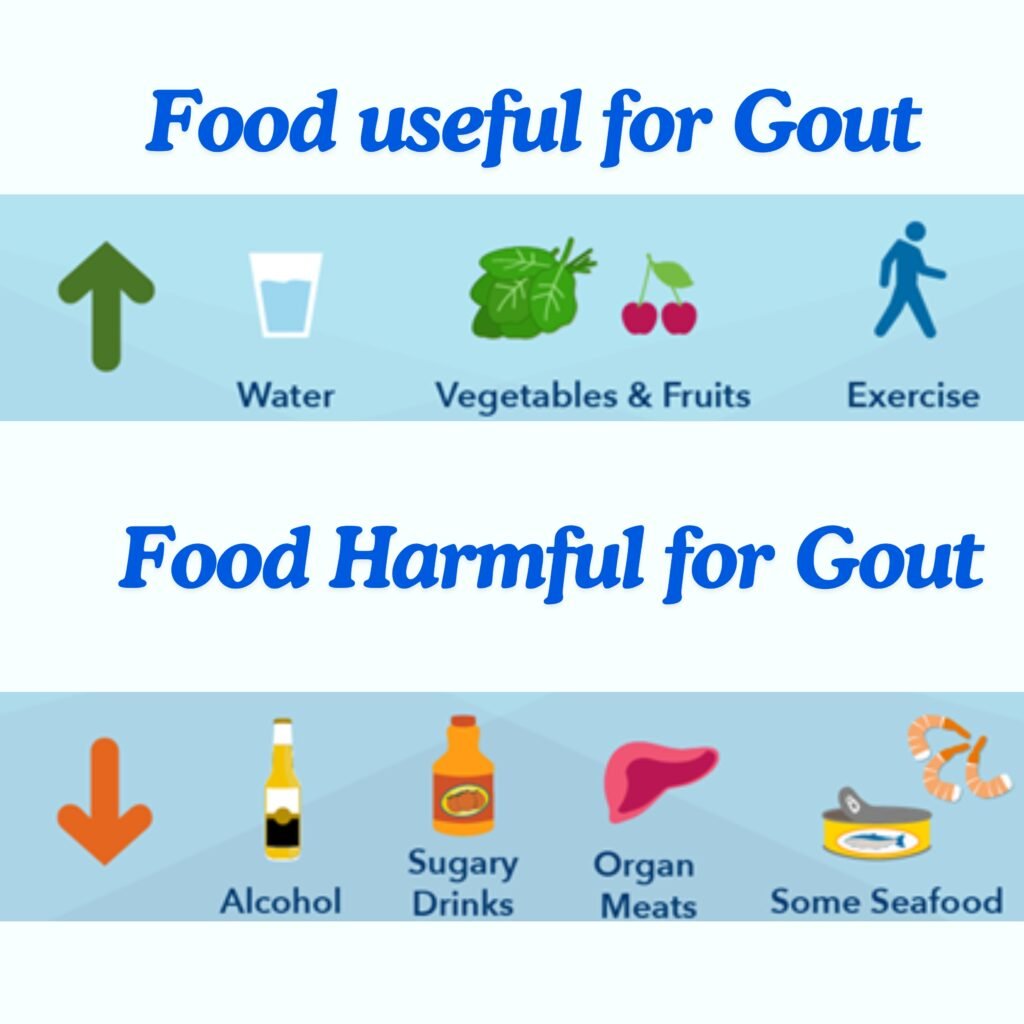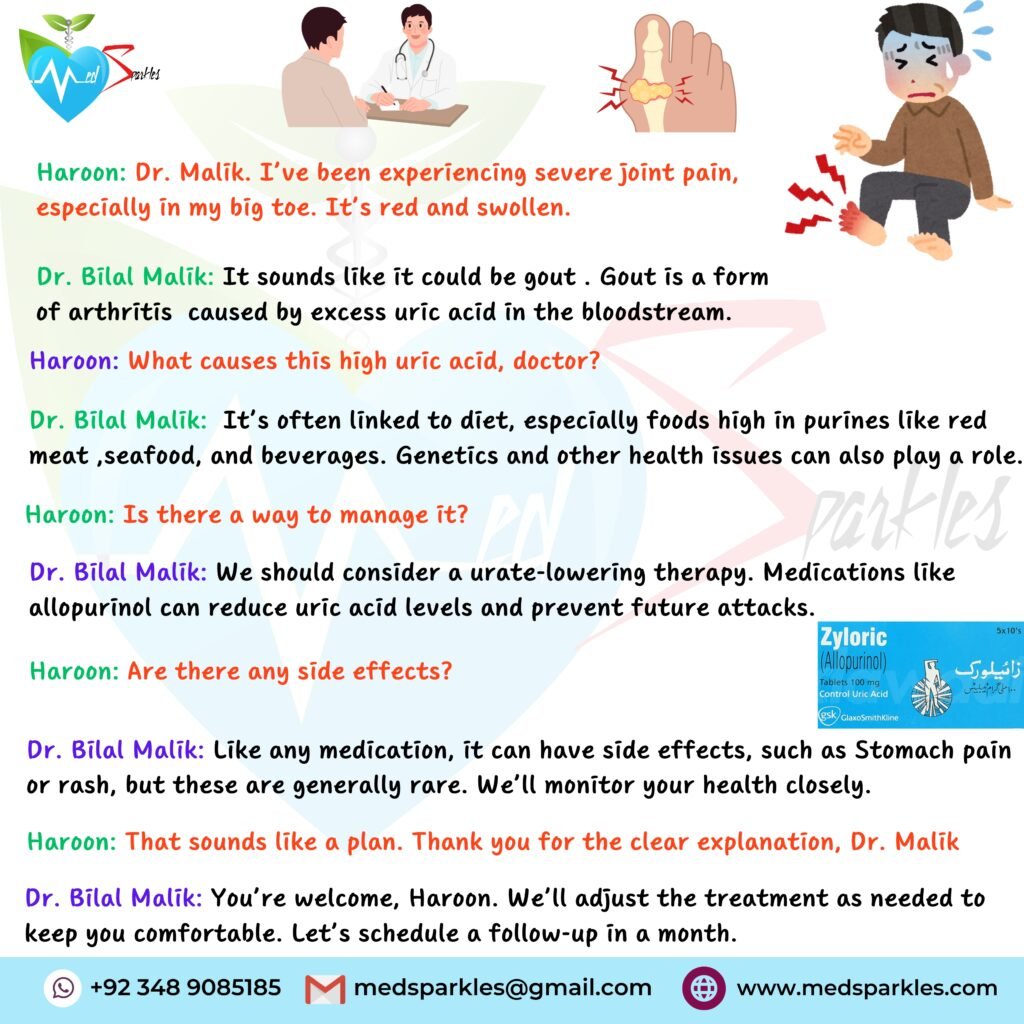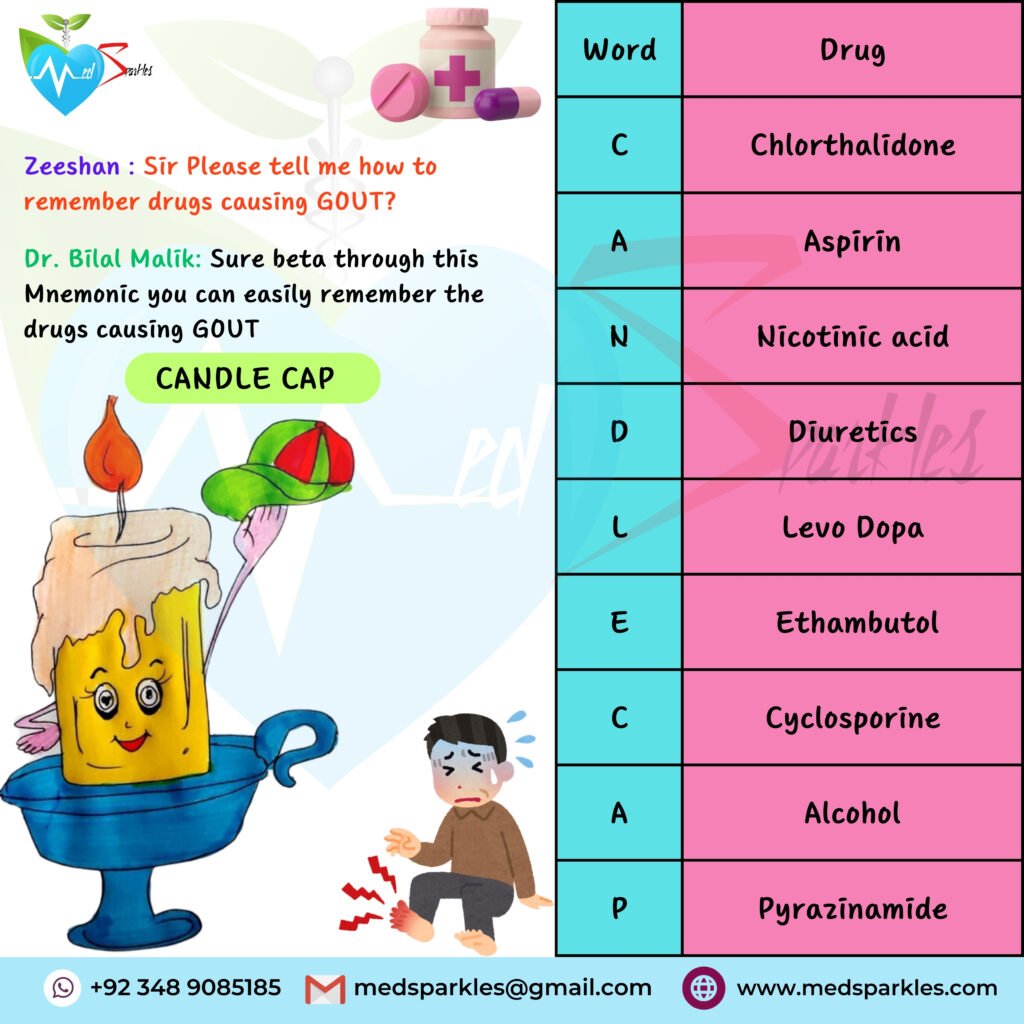A disorder affecting the body’s metabolic process that results in elevated uric acid levels and their buildup, which causes uric acid to build up in the joints and deposit as crystals. Severe joint pain and inflammation result from this.
One byproduct of protein breakdown is uric acid, which the body eliminates by excreting it through the kidneys along with urine. But if the body generates more uric acid than the kidneys can handle, or if the kidneys fail to fulfil their function of eliminating the acid from the body and excreting it with urine, this can cause an imbalance in the body’s uric acid balance, which can lead to crystals building up in the joints.
In the past, gout was referred to as “the disease of the wealthy” and “the disease of kings” because those in these social classes typically consume significant amounts of meat, which may make them more susceptible to the condition than other people.
Signs and symptoms of Gout :
- Acute joint discomfort that can affect the foot, ankle, knee, hand, wrist, and commonly the hallux joint.
- infection inside the joint.
- redness in the joints.
- Heat between joints.
- Joint oedema can occasionally happen.
Risk Factors of Gout
These are the things that make the body produce more uric acid, which raises the risk of it building up in the joints and creating sickness. Among them are:
- Alcohol misuse.
- having certain chronic illnesses, such as diabetes, high blood fat, high blood pressure, and atherosclerosis, which go untreated.
- Certain drugs, such aspirin, and specific kinds of diuretics are prescribed to treat hypertension.
- blood pressure.
- genetics. Your chances of getting the illness will increase if a family member has been diagnosed with it.
- Gender: Men are more likely than women to get gout. In addition, it often affects men between the ages of 40 and 50, whereas women typically experience it after menopause.
Complications of gout:
- flare-ups of gout, accompanied by discomfort and bothersome symptoms.
- Urate crystals build up under the skin when the condition worsens and treatment is not received; these nodules, known as tophi, can occur in the fingers, hands, feet, elbows, and ankles. Tophi nodes can enlarge and become painful during gout bouts, even though they are normally not unpleasant.
- Kidney stones are more likely to occur when uric crystals build up in the kidneys.
The goals of treatment include decreasing blood uric acid levels, avoiding seizures, and reducing discomfort, inflammation, and the risk of long-term joint damage.

Prevention Of Gout :
- Water should be consumed in moderation; two to four liters should be consumed daily.
- Limit the amount of beverages that are sweetened.
- Avoid drinking alcohol.
- Consume fruits, vegetables, whole grains, low- or fat-free milk products, and a balanced, healthful diet.
- Consume low-fat dairy products to get protein.
- Cut back on your beef, chicken, and fish intake until you are only consuming 110–170 grammes of these foods each day.
- Sustain a healthy weight.
What is pseudogout?
This condition is brought on by a kind of calcium crystals that accumulate in the joints instead of uric acid, giving rise to symptoms resembling gout. It generally happens beyond seventy years of age. In order to select the best course of action, the doctor can identify the kind of gout.
Treatment of Gout :
The goal of gout attack treatment is to lessen discomfort and inflammation as well as the likelihood of complications occurring as soon as possible and safely. Typically, this therapy is only intended to last as long as the flare. The risk of bleeding, renal function, and a history of stomach or small intestine ulcers are some of the variables that influence the choice of drugs.
- For gout attacks, anti-inflammatory drugs such indomethacin and ibuprofen are the best options. The best results from these drugs are obtained early in the assault. These drugs function to lessen joint swelling. In the case of a flare-up, the doctor could prescribe medication if gout has a history. Reducing the length of discomfort and the intensity and duration of a flare-up both depend on receiving therapy early.
Case Study And Discussion :
The Patient named Haroon come to Physician clinic and asking Dr Bilal about pain in the toe . and he was so worried about his health condition as his pain is unbearable and he try to treat with some painkiller but no relief . Dr Bilal Malik after complete taking history and examination suggest that he has Gout. Mr haroon want to know about the Gout disease, symptoms, and reason of causing gout,Dr Bilal malik explain very clearly about Gout. then prescribe him Allupurinol for treatment of Gout and guide about diet plan and exercise. the patient fully satisfied and Dr bilal guide him to visiti again after one month so we ll monitor the treatment plan.

Drugs Causing Gout
There are some drugs that causes the gout. and will increase the chances of gout if a patient using these medicines. these drugs are Chlorthalidone, Aspirin, Nicotinic acid, Diuretics, Levo Dopa, Ethambutol, Cyclosporine, Alcohol, Pyrazinamide.
Easy way to remember drugs causing GOUT :
Drugs that causing the GOUT can be easily remember through the mnemonic . CANDLE CAP.


